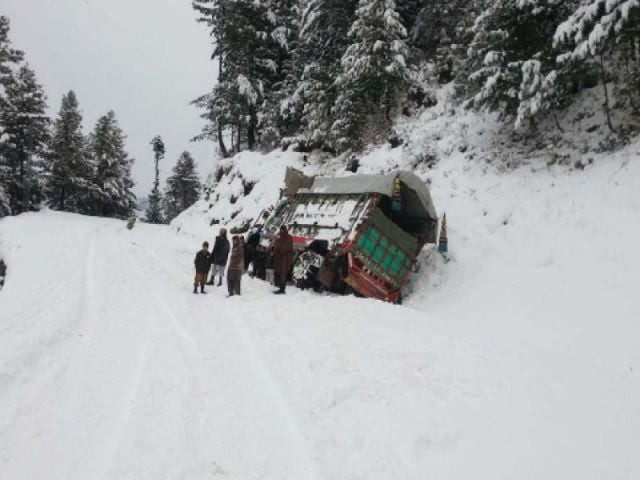Swept under the carpet: Climate change remains little-known threat in K-P
Policy initiatives have been mostly spoken about behind closed doors

Swept under the carpet: Climate change remains little-known threat in K-P
Climate change is a subject that is not widely discussed in Khyber-Pakhtunkhwa even though spending in this regard has increased by 88% over the last four years from Rs13 billion to Rs24.4 billion.
While this matter is brushed under the carpet, weather anomalies under the El Nino effect have drastically increased. Through this phenomenon, when the surface temperature in the Pacific Ocean rises, more rain and snowfall is expected in winter.
The effects of this phenomenon are likely to grow manifold in 2016.
However, this has not encouraged officials of the provincial government to put their heads together and come up with a workable strategy to address the effects of climate change.
The climate change cell, which operates within the framework of the environmental protection agency, is mandated to interact with all other government agencies and departments to account for climate change in their respective policies.
However, the climate change policy has been mostly spoken about behind closed doors. It has yet to see the light of the day even though the province has witnessed countless environmental challenges in 2015.
Similarly, the Billion Tree Tsunami is the first of its kind at the sub-national level and was accepted under the global Bonn Challenge to slow deforestation rates by 2020. However, the initiative has been viewed as nothing more than a political agenda.
Implications
Winter has become particularly harsh and the precipitation levels have also been affected.
Snowfall that was expected in February began in November. Erratic patterns of rainfall have caused flooding. This has resulted in a considerable loss to life in urban areas and dealt a heavy blow to the provincial exchequer.
According to estimates, each spell of rain in urban areas across the province has resulted in the death of at least three people.
Floods triggered by the glacial lake outburst phenomena (GLOF) phenomenon have killed more than 90 people across Malakand Division. And yet, there are a series of doubts as to what has caused these events.
Cycle of neglect
Senior bureaucrats involved in policy-making refuse to acknowledge the existence of climate change.
Earlier, the Federal Ministry of Climate Change, through its first report, told lawmakers that climate change was a bigger threat than security concerns.
A rough estimate by UNDP shows that Pakistan loses $1 billion annually because of terrorism. However, climate change has caused damages worth over Rs6 billion to the country every year. K-P has been most affected by the phenomenon.
Climate change is here to stay and adaptability is the only solution. Experts have warned that if precautionary measures are not taken, the effects will be devastating.
Unfortunately, the government has not realised the need to practically implement a policy in this regard. The year 2016 will be a test of how the K-P government will tackle this issue.
Published in The Express Tribune, January 1st, 2016.













COMMENTS
Comments are moderated and generally will be posted if they are on-topic and not abusive.
For more information, please see our Comments FAQ